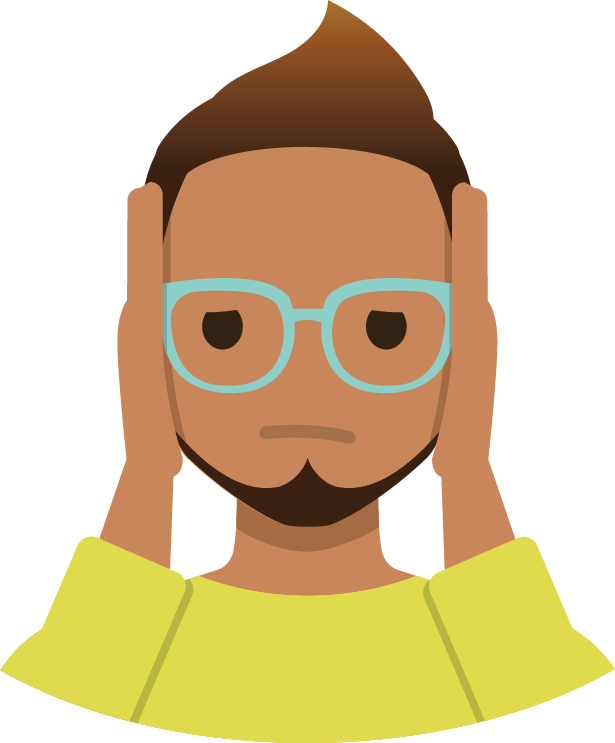Everyone feels anxious from time to time. It could be your body’s way of telling you that you're not safe or that something isn't right. We all experience stress too, at times when we're really busy or have a lot on – for example, during exams, or when work, school or college is really hectic.
Feeling some anxiety can even help you to stay focused and achieve more if, for example, you're working to a deadline or competing in an event, but if you are spending too much time worrying about certain situations or things that are happening to you, it can start to have a negative effect. This can happen to anyone.
If anxiety is affecting your day-to-day life it can help to understand what causes it and know how to find help.
Where can I find help?
You might find these tips useful to help you de-stress.
If you are feeling anxious too often or for too long and it’s starting to affect how you feel, it’s a good idea to talk to someone you trust – whether a teacher, parent, carer or your best friend. Or, if you prefer, you can talk to Childline on 0800 1111 or find other people you can talk to here. The most important thing to remember is you’re not alone and you can find support.
What is anxiety – and what causes it?
When you feel anxious you might notice:
- your heart beats faster
- your throat goes dry
- your stomach starts to churn
- you feel sick or dizzy
- you feel hot and sweaty
- you feel like you need to use the toilet
- you feel strange like you’re not really there
- you can’t think straight.
These sensations are all part of a normal, natural response which developed millions of years ago, to help us react to sudden life-threatening dangers. Early humans often needed to either run for their lives, or be ready to fight, when faced with a dangerous animal or a hostile tribe. When we feel anxious it’s actually the body going through some temporary changes to help us react more quickly and create more energy for running.
Although we no longer face the same kind of dangers, this response – known as ‘Flight or fight’ – can still save lives sometimes. It can help us move quickly out of the way of a speeding car, for example. The trouble is that everyday worries and fears, which are usually not life-threatening, can trigger the same response, so our bodies respond to protect us as if we were in real danger.
This video from the Royal College of Psychiatrists explains a bit more about some of the main types of anxiety disorder:
What's the difference between anxiety and stress?
Anxiety is when you feel fearful or nervous about certain situations or worried about things that might happen. All kinds of things, big and small, can make people feel anxious – everyone is different. You might be worried about taking an exam, having to speak in public, problems at home or even going out on a date.
Stress is when you feel overwhelmed by too many problems or too much pressure and start to find it hard to cope. Stress can trigger the ‘Flight or fight’ response causing feelings of anxiety.
While these feelings will usually go away they can sometimes develop into a panic attack. Panic attacks can be scary but can’t cause you any physical harm.

